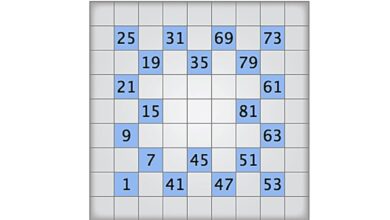Scientists Discover Why Late-Night Eating Leads to Diabetes and Weight Gain


New analysis has proven for the primary time that power launch could be the molecular mechanism via which our inner clocks management power steadiness. These findings have broad implications from weight-reduction plan to sleep loss and extra.
Well being advantages come from consuming throughout the daytime, demonstrating a possible hyperlink to power launch.
Scientists at Northwestern Medication have uncovered the mechanism behind why consuming late at night time is linked to diabetes and weight acquire. In response to the CDC, 37.3 million Individuals have diabetes, which is 11.3% of the US inhabitants. A further 96 million Individuals aged 18 years or older have prediabetes, which is 38.0% of the grownup US inhabitants. Weight problems is a standard, critical, and dear illness, with a US weight problems prevalence of 41.9%, in line with the CDC.
The connection between consuming time, sleep, and weight problems is well-known however poorly understood, with analysis displaying that overnutrition can change fats tissue and disrupt circadian rhythms.
For the primary time, new Northwestern analysis has proven that power launch could be the molecular mechanism via which our inner clocks management power steadiness. From this understanding, the researcher additionally discovered that daytime is the best time within the mild surroundings of the Earth’s rotation when it’s most optimum to dissipate power as warmth. These findings have broad implications from weight-reduction plan to sleep loss, in addition to the best way we feed sufferers who require long-term dietary help.
The paper, “Time-restricted feeding mitigates weight problems via adipocyte thermogenesis,” was printed on October 20 within the journal Science.
“It’s well-known, albeit poorly understood, that insults to the physique clock are going to be insults to metabolism,” stated corresponding research writer Dr. Joseph T. Bass, the Charles F. Kettering Professor of Medication at Northwestern University Feinberg School of Medicine. He also is a Northwestern Medicine endocrinologist.
“When animals consume Western-style cafeteria diets — high fat, high carb — the clock gets scrambled,” Bass said. “The clock is sensitive to the time people eat, especially in fat tissue, and that sensitivity is thrown off by high-fat diets. We still don’t understand why that is, but what we do know is that as animals become obese, they start to eat more when they should be asleep. This research shows why that matters.”
Bass is also director of the Center for Diabetes and Metabolism and the chief of endocrinology in the department of medicine at Feinberg. Chelsea Hepler, a postdoctoral fellow in the Bass Lab, was the first author and did many of the biochemistry and genetics experiments that grounded the team’s hypothesis. Rana Gupta, now at Duke University, was also a key collaborator.
Scrambling the internal clock
In the study, mice, who are nocturnal, were fed a high-fat diet either exclusively during their inactive (light) period or during their active (dark) period. Within a week, mice fed during light hours gained more weight compared to those fed in the dark. To mitigate the effects of temperature on their findings, the scientists set the temperature to 30 degrees, where mice expend the least energy.
“We thought maybe there’s a component of energy balance where mice are expending more energy eating at specific times,” Hepler said. “That’s why they can eat the same amount of food at different times of the day and be healthier when they eat during active periods versus when they should be sleeping.”
The increase in energy expenditure led the team to look into metabolism of fat tissue to see if the same effect occurred within the endocrine organ. They found that it did, and mice with genetically enhanced thermogenesis — or heat release through fat cells — prevented weight gain and improved health.
Hepler also identified futile creatine cycling, in which creatine (a molecule that helps maintain energy) undergoes storage and release of chemical energy, within fat tissues, implying creatine may be the mechanism underlying heat release.
Findings could inform chronic care
The science is underpinned by research done by Bass and colleagues at Northwestern more than 20 years ago that found a relationship between the internal molecular clock and body weight, obesity, and metabolism in animals.
The challenge for Bass’s lab, which focuses on using genetic approaches to study physiology, has been figuring out what it all means, and finding the control mechanisms that produce the relationship. This study brings them a step closer.
The findings could inform chronic care, Bass said, especially in cases where patients have gastric feeding tubes. Patients are commonly fed at night while they sleep, when they’re releasing the least amount of energy. Rates of diabetes and obesity tend to be high for these patients, and Bass thinks this could explain why. He also wonders how the research could impact Type II Diabetes treatment. Should meal times be considered when insulin is given, for example?
Hepler will continue to research creatine metabolism. “We need to figure out how, mechanistically, the circadian clock controls creatine metabolism so that we can figure out how to boost it,” she said. “Clocks are doing a lot to metabolic health at the level of fat tissue, and we don’t know how much yet.”
Reference: “Time-restricted feeding mitigates obesity through adipocyte thermogenesis” by Chelsea Hepler, Benjamin J. Weidemann, Nathan J. Waldeck, Biliana Marcheva, Jonathan Cedernaes, Anneke K. Thorne, Yumiko Kobayashi, Rino Nozawa, Marsha V. Newman, Peng Gao, Mengle Shao, Kathryn M. Ramsey, Rana K. Gupta and Joseph Bass, 20 October 2022, Science.
DOI: 10.1126/science.abl8007
Research support was provided by the National Institutes of Health National Institute of Diabetes and Digestive and Kidney Diseases (grants R01DK127800, R01DK113011, R01DK090625, F32DK122675, F30DK116481, F31DK130589, K99DK124682, R01DK104789 and R01DK119163), the National Institute on Aging (grants R01AG065988 and P01AG011412) and the American Heart Association Career Development Award (19CDA34670007).
#Scientists #Uncover #LateNight #Consuming #Leads #Diabetes #Weight #Acquire
Source



